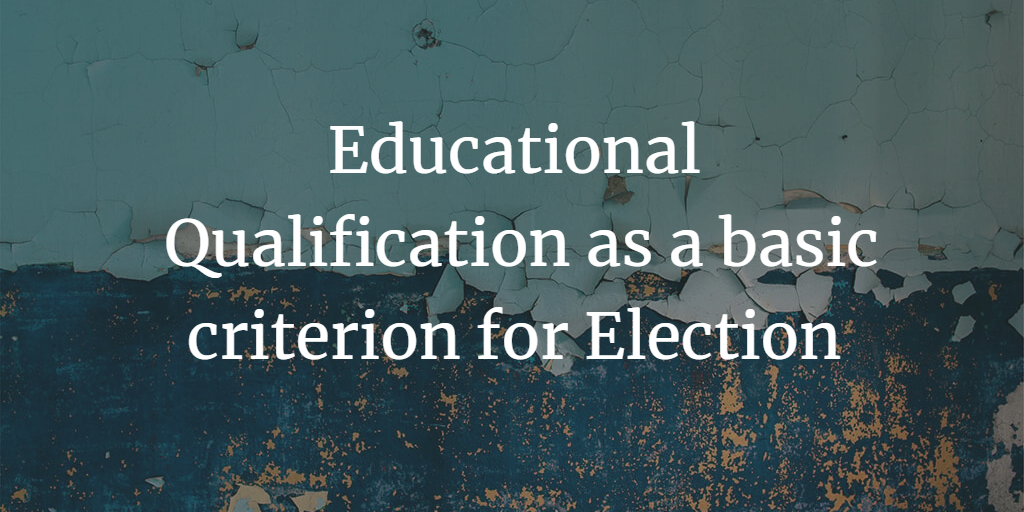Educational Qualification as a basic criterion for Election in India?

The question of whether educational qualification should be a basic criterion for election candidates in India has been a topic of debate for years. In this blog post, we delve into the pros and cons of such a requirement, and consider the implications of introducing an educational qualification threshold for election candidates.
Table of Contents
Introduction to the Debate
Arguments in Favor of an Educational Qualification Requirement
Arguments Against an Educational Qualification Requirement
Potential Implications
Conclusion
1. Introduction to the Debate
The idea of imposing an educational qualification as a basic criterion for election candidates in India has been a contentious issue. Proponents argue that it would lead to better governance, while opponents contend that it could undermine democratic principles. In the following sections, we will explore both sides of this debate in greater detail.
2. Arguments in Favor of an Educational Qualification Requirement
Proponents of an educational qualification requirement for election candidates in India cite several reasons, including:
Improved decision-making: Educated leaders may be better equipped to understand complex policy issues and make informed decisions for the welfare of the nation.
Increased accountability: Education may foster a greater sense of responsibility and ethics, which could lead to improved transparency and accountability in governance.
Role modeling: Educated leaders can serve as role models for the younger generation, inspiring them to pursue education and contribute positively to society.
Global competitiveness: As India strives to become a global superpower, having educated leaders could help the nation compete more effectively on the international stage.
3. Arguments Against an Educational Qualification Requirement
Critics of the educational qualification requirement for election candidates in India raise several concerns, such as:
Violation of democratic principles: Imposing an educational qualification requirement could violate the principles of democracy, as it may exclude a large portion of the population from participating in the electoral process.
No guarantee of better governance: Education does not necessarily guarantee better governance, as other factors, such as integrity, dedication, and experience, also play crucial roles.
Discrimination: Introducing an educational qualification requirement could disproportionately impact underprivileged and marginalized communities, further exacerbating social inequalities.
Risk of falsified qualifications: There is a risk that candidates might resort to fake degrees or forged certificates to meet the educational qualification requirement, potentially leading to legal disputes and controversies.
4. Potential Implications
If educational qualifications were to become a basic criterion for election candidates in India, there could be several implications:
Political landscape transformation: The political landscape could undergo significant changes, as many existing politicians might be unable to meet the new requirements.
Increased emphasis on education: The focus on education could lead to increased investment in the sector and an overall improvement in educational infrastructure.
Legal challenges: The introduction of an educational qualification requirement could face legal challenges on the grounds of discrimination and violation of democratic principles.
5. Conclusion
The debate surrounding the introduction of educational qualifications as a basic criterion for election candidates in India is multifaceted and complex. While there are valid arguments on both sides, it is crucial to consider the potential implications of such a requirement on the democratic process and social equity.
In conclusion, the introduction of educational qualifications as a basic criterion for election candidates in India requires a thorough analysis of its potential impact on governance, democracy, and society at large. Moreover, policymakers should explore alternative methods to improve the quality of political leadership, such as promoting political awareness, enhancing transparency, and encouraging public participation in the political process. Ultimately, the decision should be based on what best serves the interests of the nation and upholds its democratic values.


